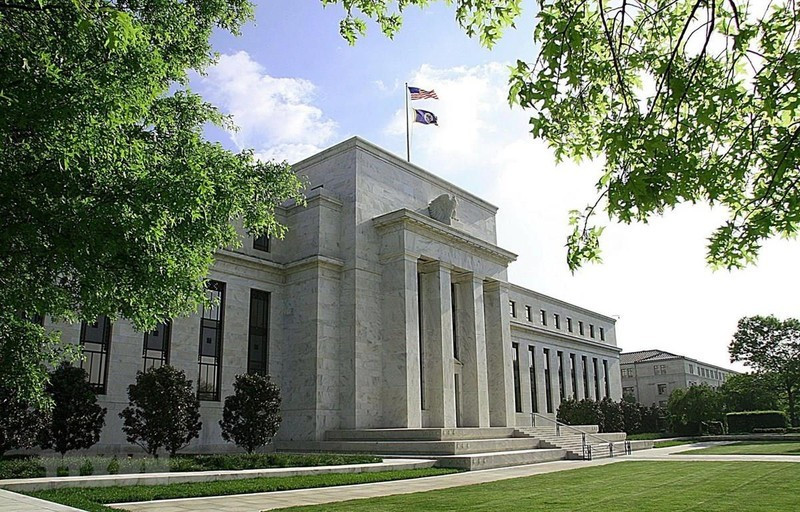Consequences for global economy
In the past weekend, member of the Board of Governors of the Federal Reserve (FED) Christopher Waller warned that the FED may have to raise interest rates higher than expected if related issues cannot be cooled down. It shows that the world's No.1 economy is still facing difficulties and this move will cause many consequences for the global economy.
The warning came after a report released in February showed that the number of jobs in the US increased unexpectedly, while inflation fell more slowly than expected. Despite falling from the middle of last year, inflation has not been as positive as expected. Statistics indicate that the target of bringing inflation down to 2% will be achieved later, as it will take longer than forecast 1-2 months ago.
In December 2022, FED officials announced that they would keep the average interest rate at 5.1% in 2023, higher than expected. However, with the current situation, the FED may continue to raise interest rates higher than the above-mentioned level. According to Waller, if the number of jobs has a downward trend like at the end of last year and inflation falls sharply, he will support raising interest rates to 5.1-5.4%.
On February 22, Before Waller revealed the above information, the FED released the minutes of the meeting in January stating that members thought that an interest rate increase was necessary. The American press revealed that, although the majority agreed to increase the interest rate by 0.25 percentage points, a few members wanted to increase the interest rate by 0.5 percentage points, which showed greater determination in the fight against inflation. According to experts, the FED is likely to raise interest rates by 0.25 percentage points in March 2023 then a few more times to bring the fund interest rate to the highest level of 5.25-5.5%. If it falls somewhere in the middle of that target, interest rates will record their highest level since 2001.
Analysts said that the FED’s continued increase of interest rates is not good news for the US economy nor the global economy, because this move will have many consequences. Once interest rates rise too quickly or too high, the US economy could fall into a recession. The US Department of Commerce has also recently expressed concern that the sharp hikes in interest rates early last year may lead to an economic slowdown this year.
The concern about the FED’s sharp increase of interest rates is even greater for developing economies, especially poor countries. Research results of economic experts showed that each percentage-point increase by the FED will cause a 0.8% decline in the growth of developing economies after three years (compared to 0.5% in advanced economies). Looking back at the FED’s rated hikes in the past, it can also be seen that this move has hurt developing economies much more than the US and developed economies.
In the 1970s when the FED raised interest rates, economies such as Mexico, Poland, and the Republic of Korea (RoK) were immediately hit hard, creating an economic crisis that pushed some Latin American countries into a “lost decade” with increasing debt and poverty. The FED’s interest rate hike in 1994 also caused another crisis in Mexico and pushed the economies of many Latin American countries towards a crisis.
In 2023, if the FED continues to raise interest rates as warned, most central banks will have to enter an "interest rate race" to balance the exchange rate. The repercussion is that global interest rates would need to continue to be raised by at least 2% more in 2023. Accordingly, investment flows and growth in major economies will slow down, causing many difficulties for the exports of many developing countries as the demand for exports declines.
Furthermore, the interest rate of the US dollar increased sharply, causing this currency to appreciate, leading to an increase in the "debt burden" of poor countries (with debts in USD). Meanwhile, the local currencies of poor countries and developing countries depreciate, causing the cost of the imported food and fertilisers to increase sharply.
The global economy has been slowly recovering from the COVID-19 pandemic. In that context, the FED’s interest rate hike should be carried out simultaneously with accompanying support measures for developing economies, especially those with low income, high public debt, and dependence on food and energy imports.






